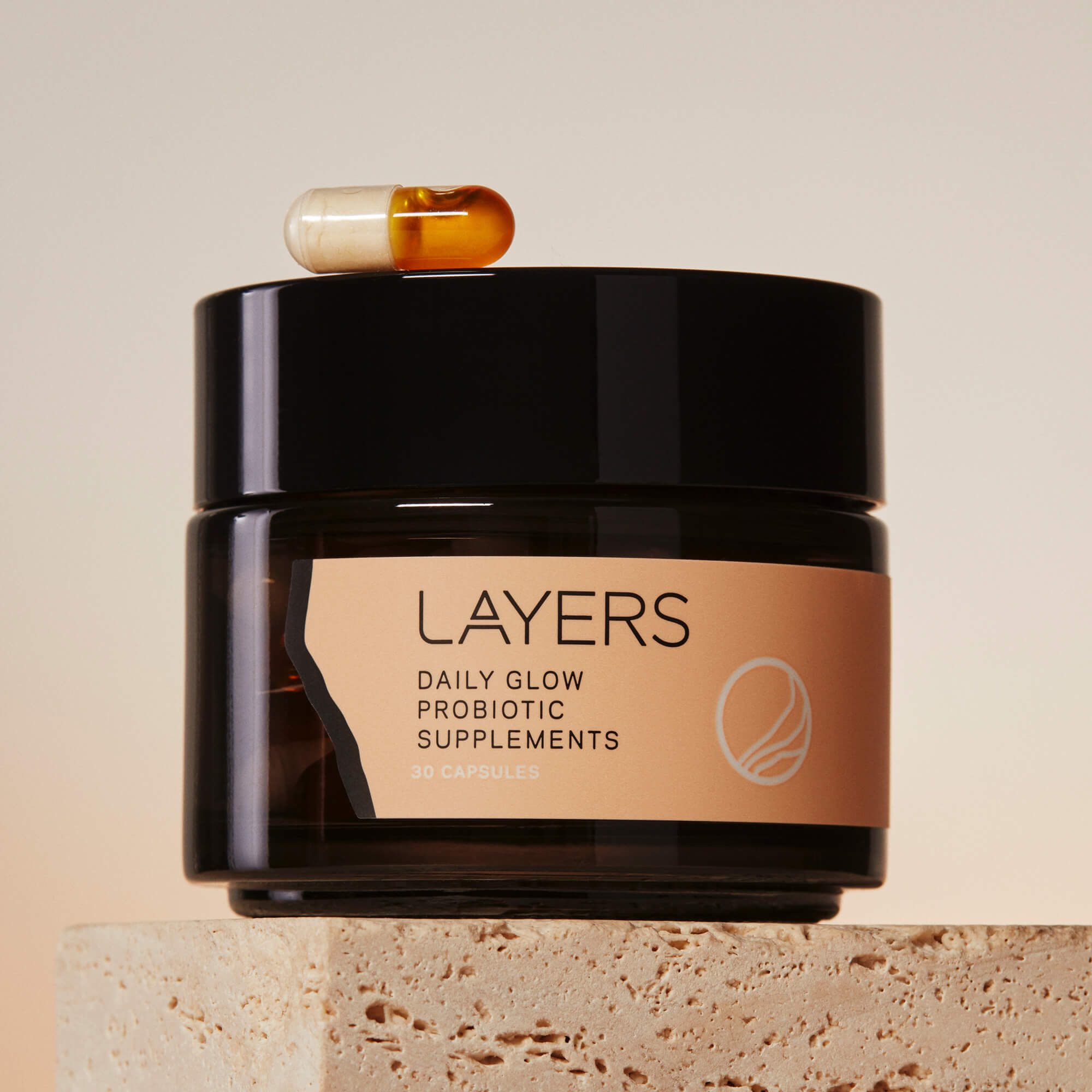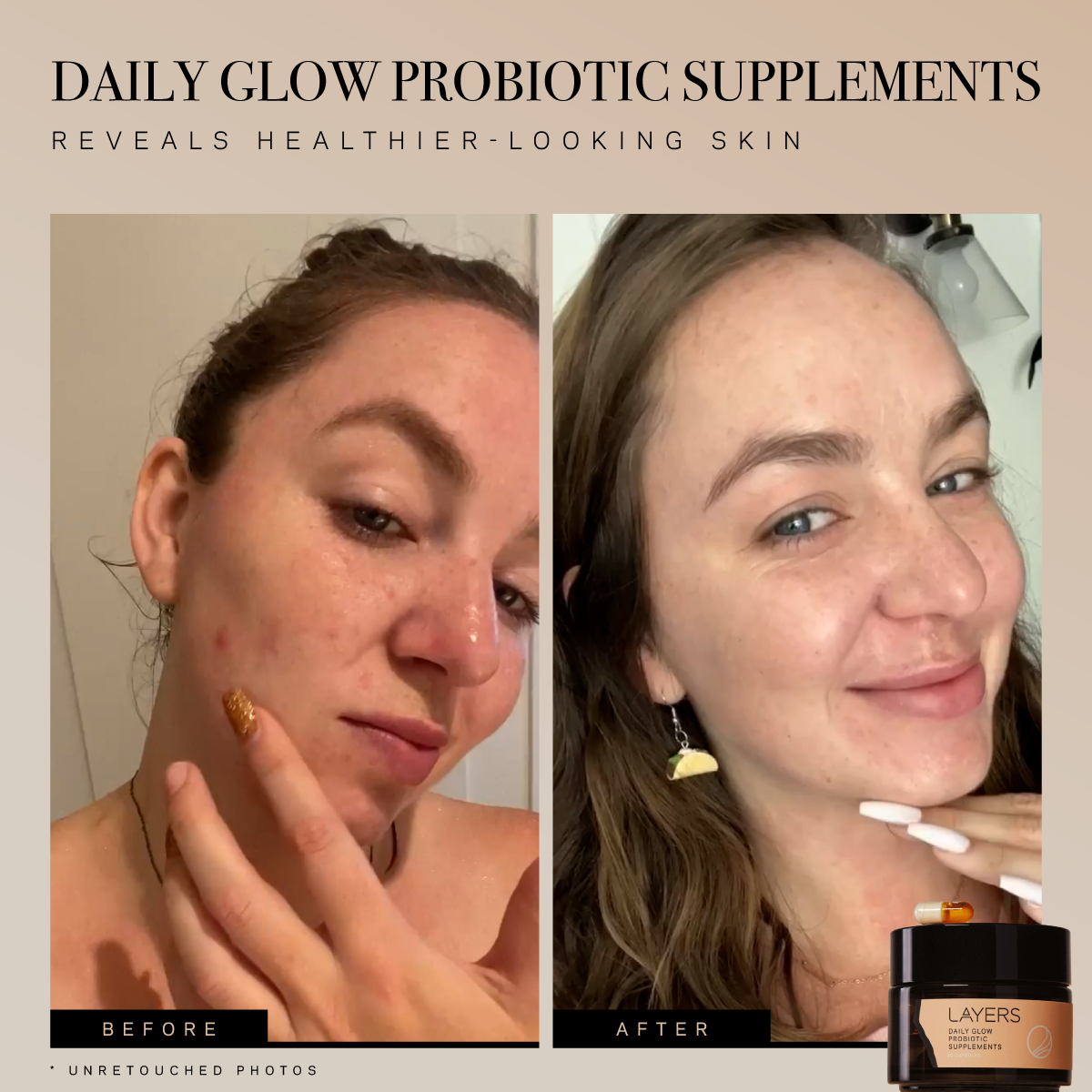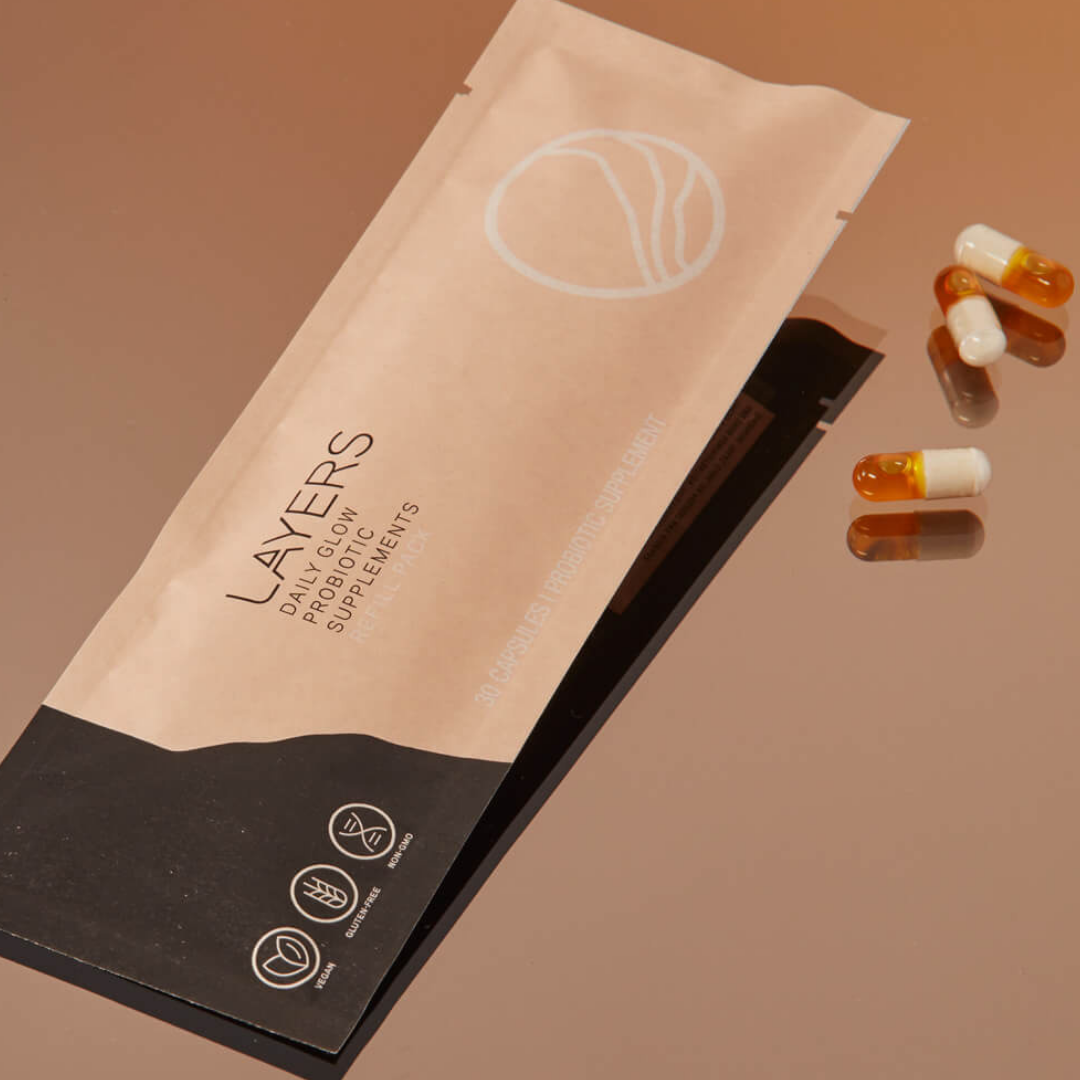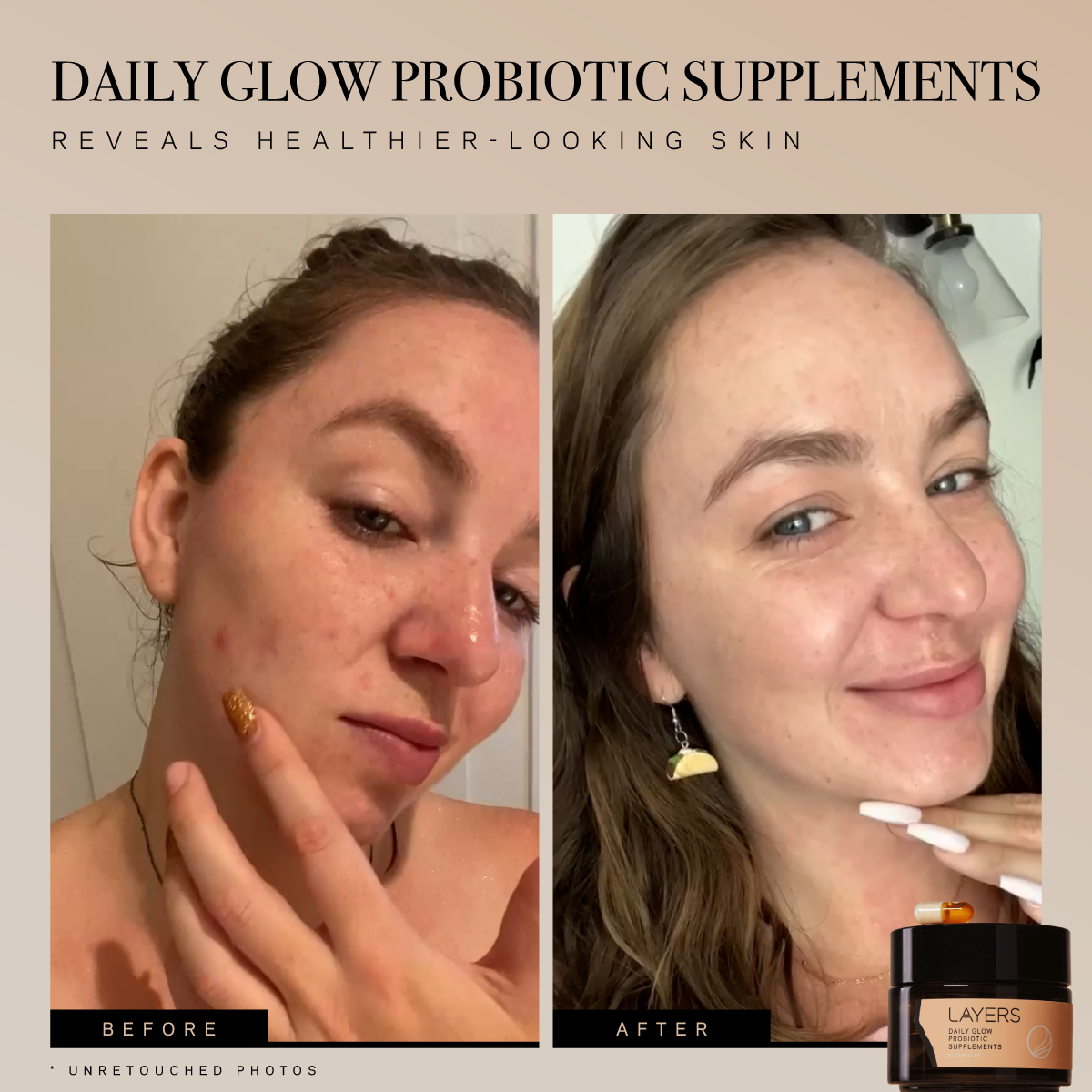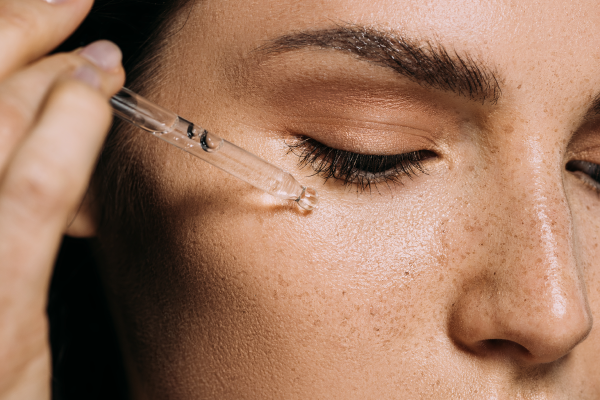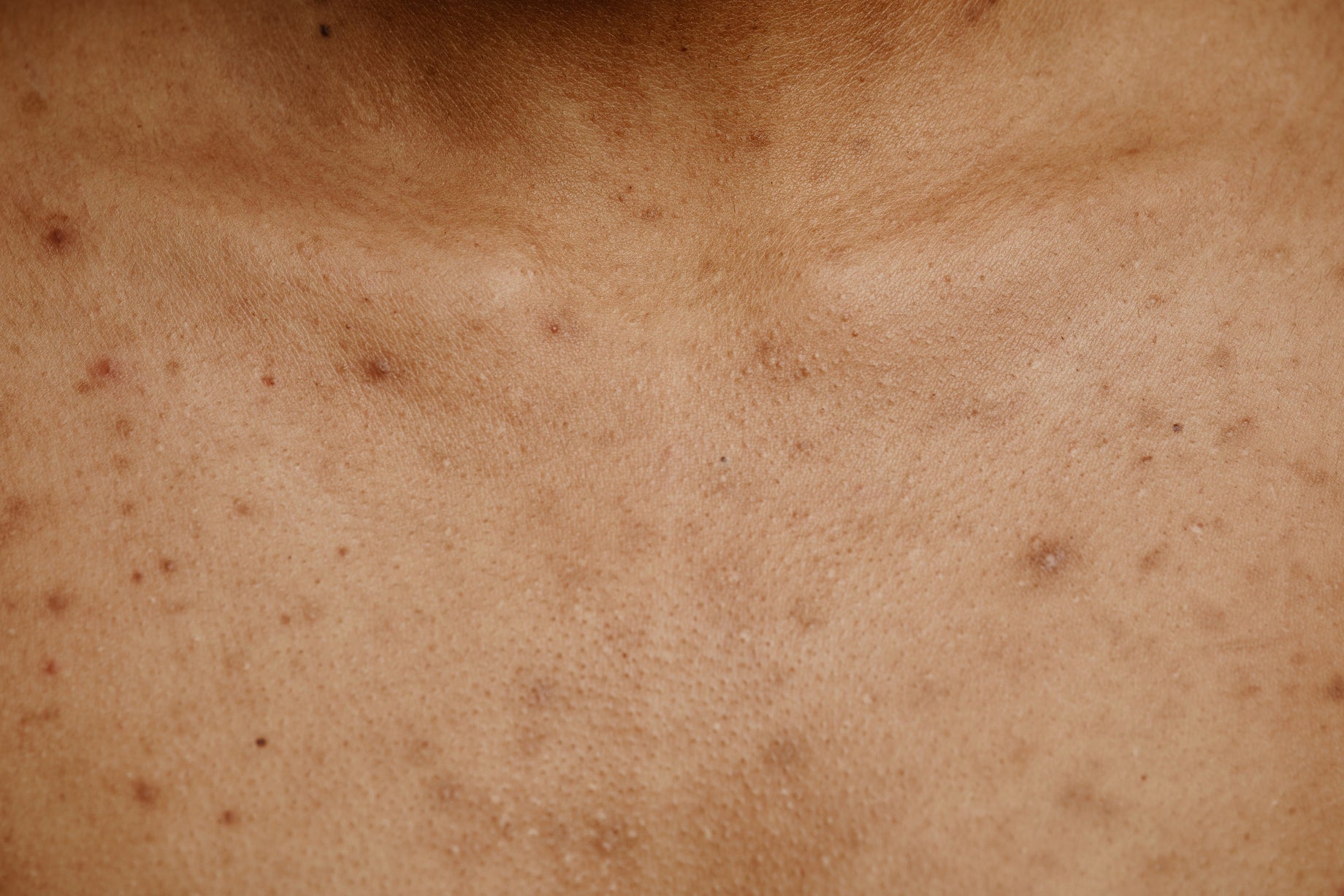Wondering how to keep your skin quenched all year long? We’ve got answers.
Have you ever stood in a long check-out line at the grocery store or waited years at the DMV with nothing better to do than conduct a quick skin survey of your neighbors in the queue?
Come on, we all do it.
Whether it’s the envious admiration of someone who’s effortlessly sporting those curls that take you an hour and a half to achieve every morning or the springy suppleness of that 20-something’s complexion, we’re all guilty. It’s totally normal to appreciate the assets of strangers. But the good news is that science is helping us better understand how these traits can be more achievable for the rest of us.
DRY SKIN VERSUS DEHYDRATED SKIN
First, let’s start by defining what a lack of skin hydration looks and feels like. If your skin is dehydrated, then you’re experiencing a lack of water within the layers of your skin. It sounds pretty logical, right? The important thing is not to confuse dehydration with dry skin, because they’re actually two different conditions that require two different approaches.
Dry skin is a result of a lack of oil, rather than water. If you feel like your skin is patchy and flaky, this dryness can either be genetic, or it can be a side effect of using products that your skin isn’t loving. Exfoliators that are too abrasive are a common culprit, as are products that use harsh chemicals known to dry out the skin.
If you suspect that dry skin is an issue for you, then immediately ditch any exfoliators you’re using and switch to a gentle product containing Lactic Acid. You can read more about the do’s and don’ts of exfoliation here. We’d recommend trying our Balancing Milky Cleanser for a gentle and effective daily dose of Lactic Acid that’ll soothe your dry skin while gently sloughing off any cells that need to go.
THE BIOLOGY OF HYDRATION
So, that brings us to hydration. Why does skin lack water in the first place, and what can we do about it? Dehydrated skin appears loose, can be flaky, and it makes wrinkles more noticeable. It’s caused by too much TEWL or transepidermal water loss. Your skin cells release water through daily physical activity like exercise. Environmental pollution also contributes to the problem, as does diet.
Unfortunately, putting on a mermaid suit and living in a bathtub isn’t going to cut it. Neither is showering multiple times per day. And, sorry to poke a hole in your water balloon, but drinking more water hasn’t demonstrated any evidence that it’s going to help your skin, either. In fact, studies have shown that you can actually overhydrate, leading to consequences like Hyponatremia, a kidney condition where your sodium levels have been diluted by too much water.
5 KEYS TO KEEPING YOUR SKIN HYDRATED:
-
Get Clean: Start your clean beauty journey now. Product packaging makes a lot of promises, but the label is where your focus should be. If you’re not already using a clean skincare line, then you can learn more about what that means in Ready to Get Clean? You’ll learn about the “Dirty Dozen”, a list of 12 ingredients to avoid. Getting to know your skincare products is the first step toward protecting and nourishing your skin.
-
Let it Be: Over-cleansing is a surefire way to deplete the moisture in your skin. Foaming cleansers might feel good and give the impression that they’re good for your skin, but that foamy effect isn’t natural. These products can contain drying chemicals that overdo it, stripping your skin of the oil and moisture that it needs to stay healthy. A milky cleanser, like our Balancing Milky Cleanser, will gently cleanse while reinforcing your skin barrier so it can better lock in critical moisture.
-
Love your Lipids: Skincare products that contain lipids like ceramides, will strengthen your skin barrier and help prevent water evaporation. Ceramides are like little building blocks that boost the suppleness of your skin cells. They’re responsible for keeping loose, dehydrated skin from falling through literal cracks in the surface of the skin. Ceramides are especially important for mature skin. You can boost your ceramides every day with our Daily Glow Probiotic Supplements. Additionally, you can increase your lipid levels with our Renewing Probiotic Serum, a nourishing topical serum containing lactobacillus ferment, and Meadowfoam Oil, a plant extract that replenishes lost moisture in the skin.
-
Eat Your Essentials: Three words: Essential Fatty Acids. These can be found in all types of healthy foods like nuts, tofu, and certain seafood. You can also source them through ceramides by taking a daily probiotic like our Daily Glow Supplements.
-
Lock it In: Use an occlusive to lock in moisture so you don’t lose it during the night. You don’t want all of the juicy benefits of your serum to go to waste now, do you? Slather on a rich, emollient, moisture-locking lotion. Our Immunity Moisturizer contains hydrating botanicals like Milk Thistle, Meadowfoam Oil, and Pomegranate Extract so you’ll wake up with supple, hydrated skin.
Skin hydration depends on your activity levels, your environment, your diet, and the levels of pollution you’re exposed to daily. But the most important factor is what you’re putting on your skin. So cleaning up your skincare routine and supporting your skin microbiome is your first line of protection from the elements.
Using skincare products that help retain water and prevent evaporation is key. Layers Probiotic Skincare is designed with this in mind. Relying on clean ingredients and the most up-to-date microbiome science, we’re able to deliver a probiotic skincare line that supports you and your skin from the inside out.

